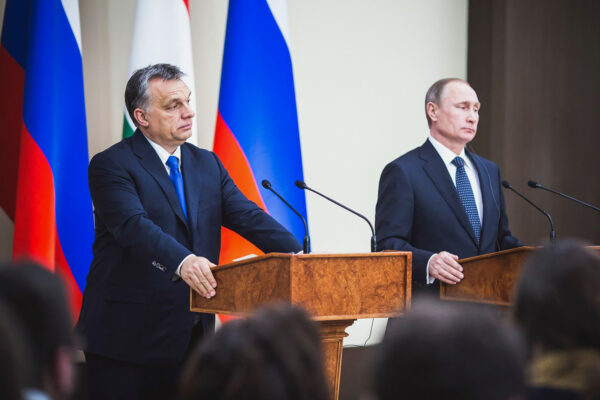
Michael Meyer-Resende of Democracy Reporting International argues for Carnegie Europe that applying the term “illiberal democracy” or “majoritarianism” to the politics of Hungary and Poland is a misnomer. The ruling parties there are not undermining democracy — by taking control of the (state) media, stacking the courts and rewriting election laws — for the sake of the majority, but rather to maintain their own power.
Viktor Orbán’s Fidesz and Jarosław Kaczyński’s Law and Justice party pretend to apply a majoritarian logic while colonizing the institutions of checks and balances:
For now, it means the majority can rule without constraints. Tomorrow, it means they can thwart another majority by using their control of the judiciary and state media.
Democracy must be liberal
You can’t separate liberalism from democracy, argues Meyer-Resende. Freedom of association and speech, an independent judiciary and fair election laws are all essential to democracy.
- If the media do not allow a debate, and voters and candidates cannot express themselves freely and organize into parties, how can popular views be translated into public policy?
- If the electoral system gives absolute control to a party that wins only 38 percent support (Poland) or even a two-thirds majority to a party that wins 49 percent support (Hungary), is that democratic?
Not ideologues
Germany’s Der Spiegel, reporting on the same topic, points out that the likes of Kaczyński, Orbán, Turkey’s Recep Tayyip Erdoğan and Russia’s Vladimir Putin are not ideologues:
Rather, they are strategists of power who used ideologies without necessarily believing in them themselves.
Their great example is China. The legitimacy of its Communist Party is no longer rooted in ideology, but rather in economic growth, sophisticated repression, state-sponsored nationalism and the coopting of social elites.
The Chinese dictatorship of development poses the greatest economic, political and intellectual challenge to the liberal world order. Because of its size and population, China creates economic dependencies that smaller countries on its periphery simply cannot escape. But even politicians and business leaders in Western industrialized nations fall victim to the dynamism and efficiency of the Chinese model.
Once they come to power, though, the enemies of liberal democracy all turn out to be corrupt — often despite promising to weed out corruption, or, as Donald Trump put it, “drain the swamp”.
Be it Putin or Erdoğan, the Communist Party of China or Fidesz in Hungary, they all rule through a complex system of patronage.
Who loses out in this scheme? The same little guy these “men of the people” claim to represent.
